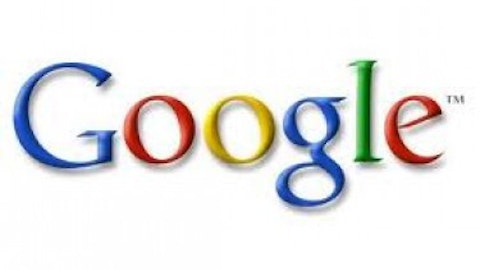
John Griffin, manager of Blue Ridge Capital, is the big brother of all so-called “tiger cubs,” which is the name given to mentees of famed investor Julian Robertson. Since launching Blue Ridge in the mid nineties, Griffin has amassed quite the group of investors, and currently manages just over $11 billion in assets under management.
Like all hedge funds, Blue Ridge has its fingers in many different asset classes, though it is particularly bullish on American equities. Griffin’s fund has over half of its capital in U.S. stocks, reporting a $6.6 billion 13F portfolio last quarter. Here’s a longer look. Of those holdings, nearly a fifth are invested in the technology sector, primarily in some of the market’s biggest behemoths, with none bigger than Apple Inc (NASDAQ:AAPL). Let’s take a look at Blue Ridge’s top two tech picks in greater detail.
Apple Inc (NASDAQ:AAPL)
No shocker here. Apple Inc (NASDAQ:AAPL) is currently Blue Ridge’s top stock pick, accounting for 6.6% of the fund’s portfolio for a total value of $438.9 million as of the end of last quarter. Of the funds we track, Griffin has the fifteenth largest position in the tech giant, with other tiger cubs like Philippe Laffont, Rob Citrone and Chase Coleman’s Tiger Global Management, each holding stakes worth more than $800 million. Other notable fund managers with an interest in Apple Inc (NASDAQ:AAPL) include David Einhorn and Jim Simons.
At the end of last quarter, Griffin increased his position in Apple Inc (NASDAQ:AAPL) by 4%, and in the time since, the stock has returned a shave over eight percentage points. As has been widely covered throughout the blogosphere, Apple hit $705 a share in the middle of September before falling back down to its current trading range of $630. The company has been through a lot in recent weeks, from a wild patent ruling against Samsung to its Maps snafu. While there are reasons to be bearish, we’re still talking about the Apple Inc (NASDAQ:AAPL) here.
The tech giant recently hit an all-time market cap high, topping even what Microsoft Corporation (NASDAQ:MSFT) reached during the height of the dot-com bubble. Despite the recent selloff, shares of Apple Inc (NASDAQ:AAPL) have still gained a whopping 56.2% since the start of 2012, and are surprisingly undervalued at the moment. Apple sports a PEG ratio of 0.68 even though analysts expect annual EPS growth in excess of 20% over intermediate term, and even more, it trades at a trailing P/E ( 14.9X) below both its industry average (16.4X) and its five-year historical average (21.9X).
Google Inc (NASDAQ:GOOG)
Similar to Apple Inc (NASDAQ:AAPL), Google also trades at a discounted earnings multiple. The company, which lost close to 8% after accidentally releasing a Q3 earnings miss in the middle of the trading day. At just over 20 times earnings, Google is 30% cheaper than the Internet content and information industry’s average (28.6X). Interestingly, the earnings of competitors like Apple Inc (NASDAQ:AAPL), Microsoft (14.7X), and Yahoo! Inc. (NASDAQ:YHOO) (18.0X) are less sought after than those of Google.
Foreign search engine peers Baidu.com, Inc. (NASDAQ:BIDU) and Yandex NV (NASDAQ:YNDX) trade at more expensive P/Es, sporting multiples of 28.9X and 33.0X respectively. When growth is factored into the equation, however, we can begin to understand the picture a bit more clearly. With a PEG of 1.22, Google is fairly valued, but above the likes of Apple Inc (NASDAQ:AAPL) which was mentioned above, Baidu (0.70), and Yandex (0.93). Of its peers, only Microsoft is more expensive than Google from an earnings growth standpoint, with a PEG of 1.67. Yahoo trades nearly at parity with its primary search competitor.
While Yandex and Baidu have government-related concerns built into their discounts, the undervaluation of Apple Inc (NASDAQ:AAPL) is more of an enigma. At its current state, it seems like investors are hyperactively trading the stock at the sight of any news, forgetting the company’s real growth prospects. While it’s always possible that the loss of Steve Jobs is still in those investors’ minds, Tim Cook has proven himself a more than adequate successor. Apple Inc (NASDAQ:AAPL) reports its Q4 earnings on October 25th; analysts are expecting EPS of $8.85, a 25% growth from the same time last year.
In 2013, consensus is predicting that Apple Inc (NASDAQ:AAPL) will reach an EPS of $53.45, a near-doubling since 2011. By comparison, Google is expected to finish next year with earnings up 38.5% from 2011, while Microsoft (12.3%) and Yahoo (35.7%) expect slower growth.
Griffin’s Blue Ridge Capital holds over $300 million worth of Google in its portfolio, good for 4.6% of its total 13F holdings. Similar peers are bullish with Griffin in this stock, including Coleman and Laffont, while the infamous Ken Fisher also holds a $419 million position. Over the last quarter, Griffin was less bullish on Google than Apple Inc (NASDAQ:AAPL), as he chose to keep his holdings in the company flat.
Due to its superior growth prospects and cheaper valuation, we can perhaps understand why Griffin is placing a larger bet on Apple Inc (NASDAQ:AAPL) than Google. Judging by our empirical studies that show individual investors who mimic or “monkey” top-notch hedge funds can beat the market by 7% a year, we’d say its not a bad idea if you weight your portfolio the same.





